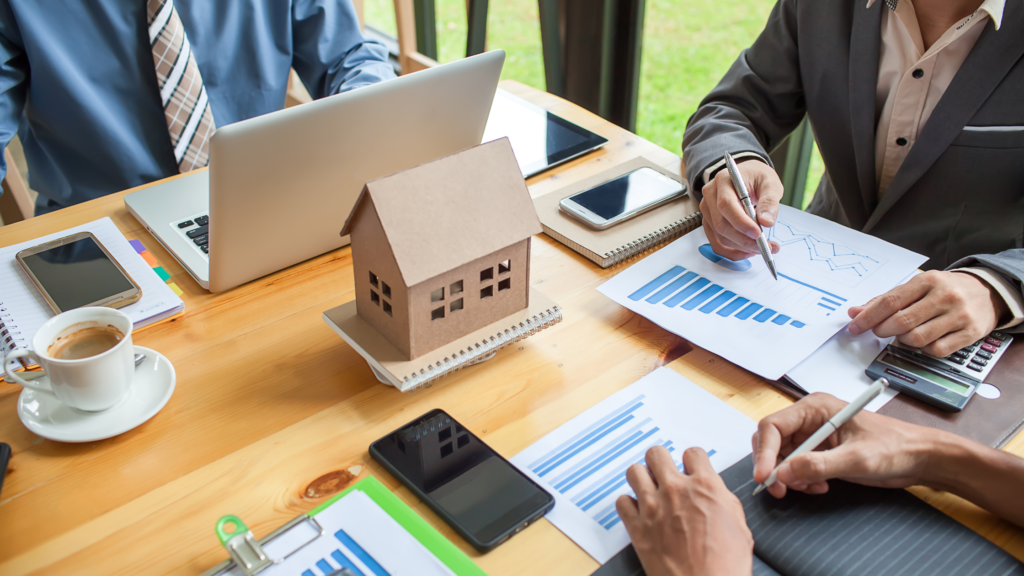Smart Investment in Sustainable Real Estate
Sustainable real estate investment is a financial move that’s perfectly in sync with global sustainability goals. But what makes sustainable real estate such a smart bet? It’s a perfect storm of factors: rising energy costs making efficient buildings more valuable, tenants demanding greener spaces, and regulations increasingly favoring eco-friendly structures. From cutting-edge green technologies that slash operating costs to wellness-focused designs that boost productivity, sustainable real estate is redefining what it means to build for the future. IN this article we’ll explore key strategies for identifying promising sustainable properties, unpack the myriad benefits—both financial and environmental—and examine how sustainability is rapidly becoming the cornerstone of the real estate sector. Understanding Sustainable Real Estate What is Sustainable Real Estate? Sustainable real estate involves properties designed, built, and operated in ways that reduce their environmental impact. This includes using energy-efficient technologies, sustainable building materials, and incorporating green spaces. The goal is to create buildings that are not only eco-friendly but also economically viable and beneficial for occupants. The Benefits of Investing in Sustainable Real Estate Economic Advantages Investing in sustainable real estate can lead to significant economic benefits. Energy-efficient buildings reduce operational costs through lower utility bills. Additionally, sustainable properties often attract higher occupancy rates and rental premiums due to increasing demand for green buildings. These financial advantages make sustainable real estate a profitable investment. Environmental Impact It significantly reduces the carbon footprint of buildings. By using renewable energy sources, efficient water management systems, and sustainable construction practices, these buildings contribute to environmental conservation. This reduction in environmental impact aligns with global efforts to combat climate change and promote sustainability. Health and Well-being Green buildings are designed to provide a healthier living and working environment. Improved air quality, natural lighting, and the use of non-toxic materials enhance the well-being of occupants. This focus on health can lead to higher productivity and satisfaction among residents and employees, further increasing the value of sustainable properties. Key Strategies for Sustainable Real Estate Investment 1. Focus on Energy Efficiency Energy efficiency is a cornerstone of sustainable real estate. Investors should prioritize properties that incorporate advanced energy-saving technologies such as solar panels, LED lighting, and smart HVAC systems. Retrofitting existing buildings with these technologies can also significantly enhance their sustainability and reduce operational costs. 2. Use of Sustainable Materials The choice of building materials plays a crucial role in sustainable real estate. Opt for materials that are renewable, recycled, or have a low environmental impact. Examples include bamboo, reclaimed wood, and recycled steel. Using sustainable materials not only reduces the environmental footprint of a property but also enhances its appeal to eco-conscious tenants. 3. Water Conservation Practices Implementing water conservation practices is essential for sustainable buildings. Techniques such as rainwater harvesting, greywater recycling, and the use of low-flow fixtures can significantly reduce water consumption. These practices not only benefit the environment but also lower utility costs. 4. Integration of Green Spaces Incorporating green spaces into real estate developments can enhance their sustainability. Green roofs, vertical gardens, and landscaped areas provide ecological benefits, such as improved air quality and biodiversity. They also create pleasant environments for occupants, increasing the property’s desirability. The Growing Demand for Sustainable Real Estate The demand for sustainable real estate is on the rise, driven by increasing awareness of environmental issues and the benefits of green buildings. Tenants and buyers are increasingly seeking eco-friendly properties that offer health, financial, and environmental advantages. This trend is reflected in the higher market values and occupancy rates of sustainable buildings. Challenges and Solutions in Sustainable Real Estate Investment 1. Initial Cost and Financing One of the primary challenges in sustainable real estate investment is the higher initial cost associated with green technologies and materials. However, various financing options, such as green bonds and government incentives, can help offset these costs. Additionally, the long-term savings on operational costs make sustainable properties a financially sound investment. 2. Regulatory Compliance Navigating the regulatory landscape can be complex, as sustainability standards and certifications vary across regions. Investors should stay informed about local regulations and seek properties that meet recognized sustainability certifications, such as LEED or BREEAM. Compliance with these standards not only ensures environmental benefits but also enhances the marketability of the property. 3. Market Perception and Education Educating stakeholders about the benefits of sustainable real estate is crucial for overcoming market perception challenges. Investors, tenants, and developers need to understand the long-term advantages of green buildings. Hosting workshops, seminars, and marketing campaigns can help raise awareness and promote the adoption of sustainable real estate practices. Investing in sustainable real estate is a smart and forward-thinking strategy that offers numerous economic, environmental, and social benefits. For organizations like Bottom Billion Corporation, promoting sustainable real estate investments aligns with their mission to drive economic development and environmental stewardship. By focusing on energy efficiency, sustainable materials, water conservation, and green spaces, investors can build a robust and impactful real estate portfolio. Embracing sustainable real estate not only contributes to a healthier planet but also ensures long-term financial returns, making it a wise investment choice for the future.
Smart Investment in Sustainable Real Estate Read More »

